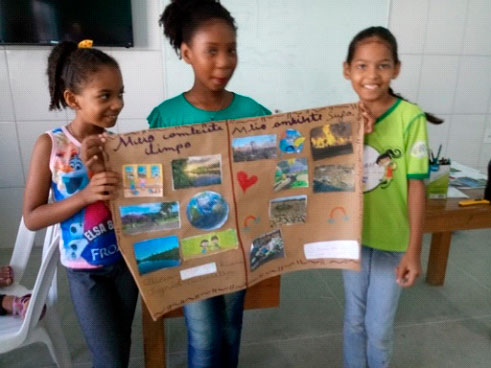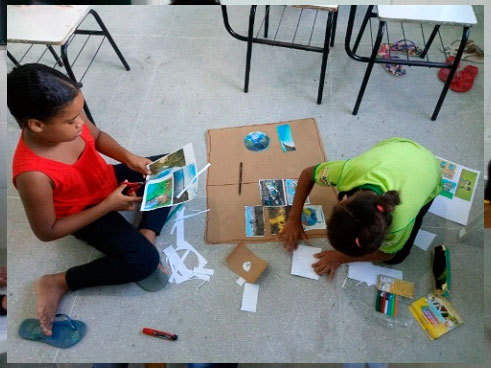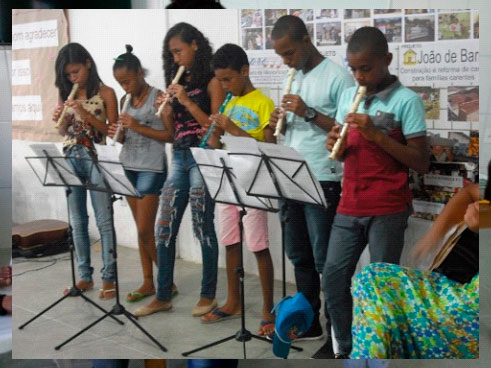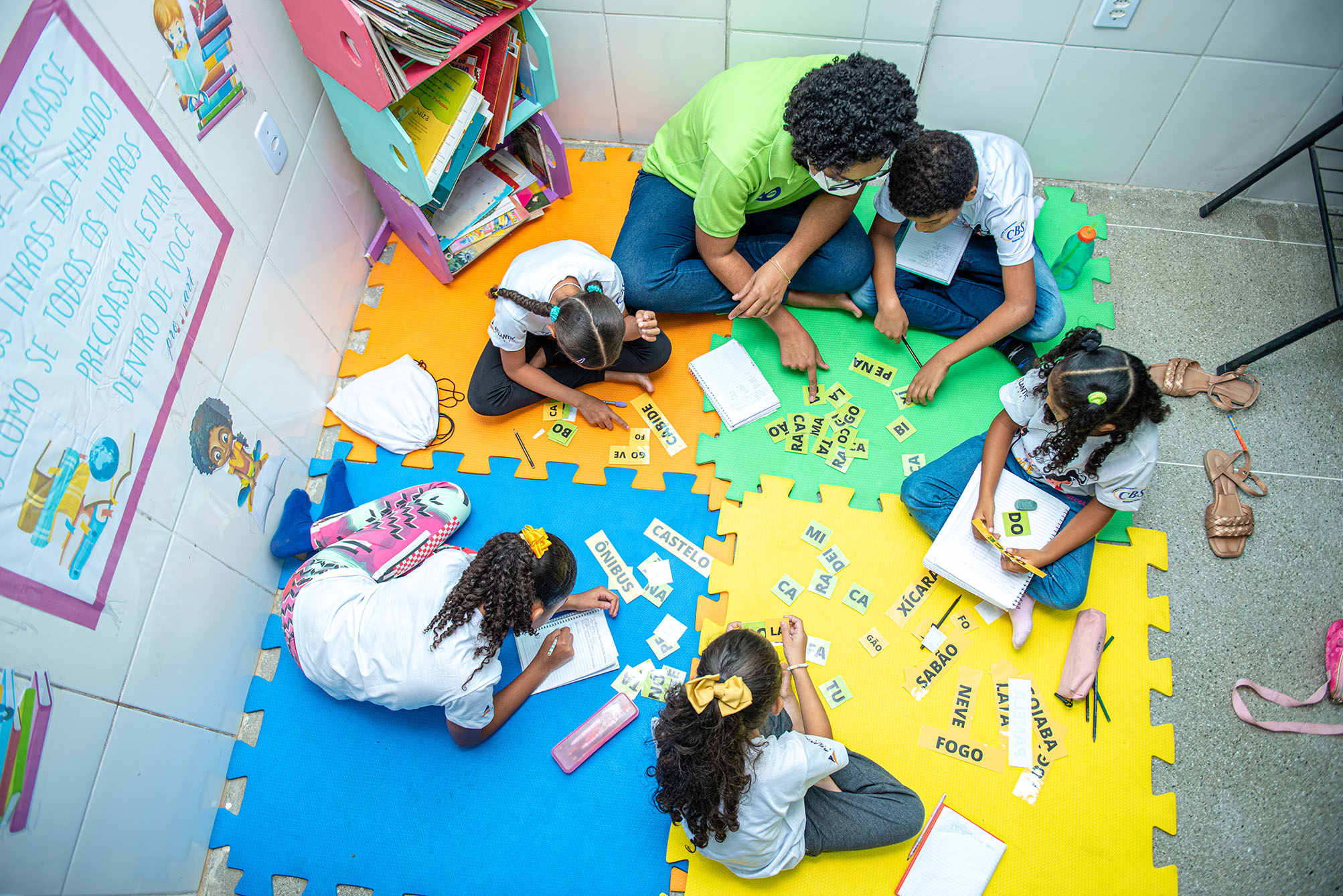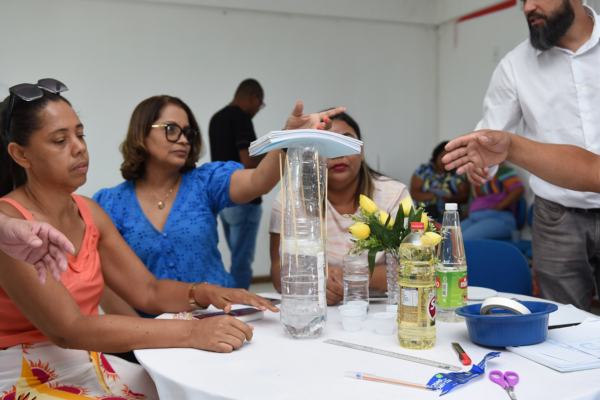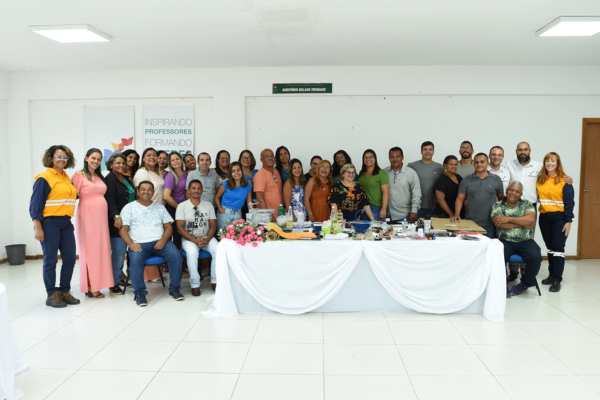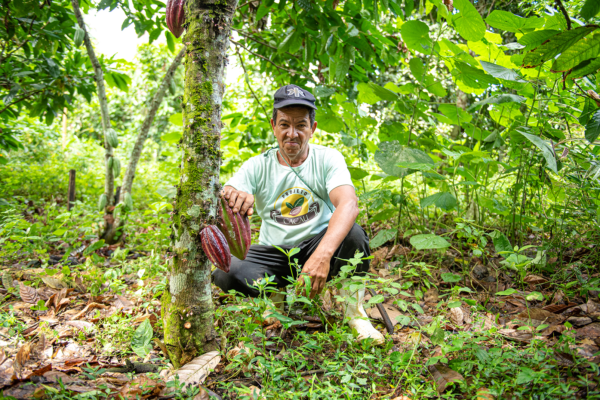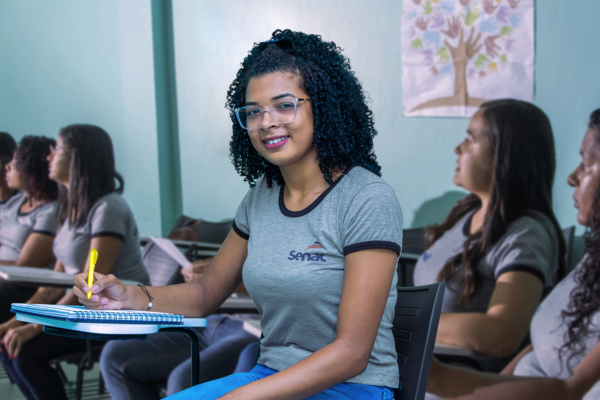Atlantic Nickel is committed to sustainable development
Home / CSR
Sustainability
We are committed to promoting a culture that prioritizes occupational health and safety. As the primary business enabler, continued improvements in safety performance at the Santa Rita Mine are a strategic long-term imperative. The company actively contributes to regional development through environmental education programs, donations and assistance to the community.
This process generally involves a comprehensive review of existing environmental liabilities, rehabilitation and closure plans, local legislation and licensing requirements, and local communities. The Atlantic Nickel team is aware of the continual need for social engagement and securing our license to operate by ensuring that all projects and opportunities have a viable, well-established and beneficial social outcome.
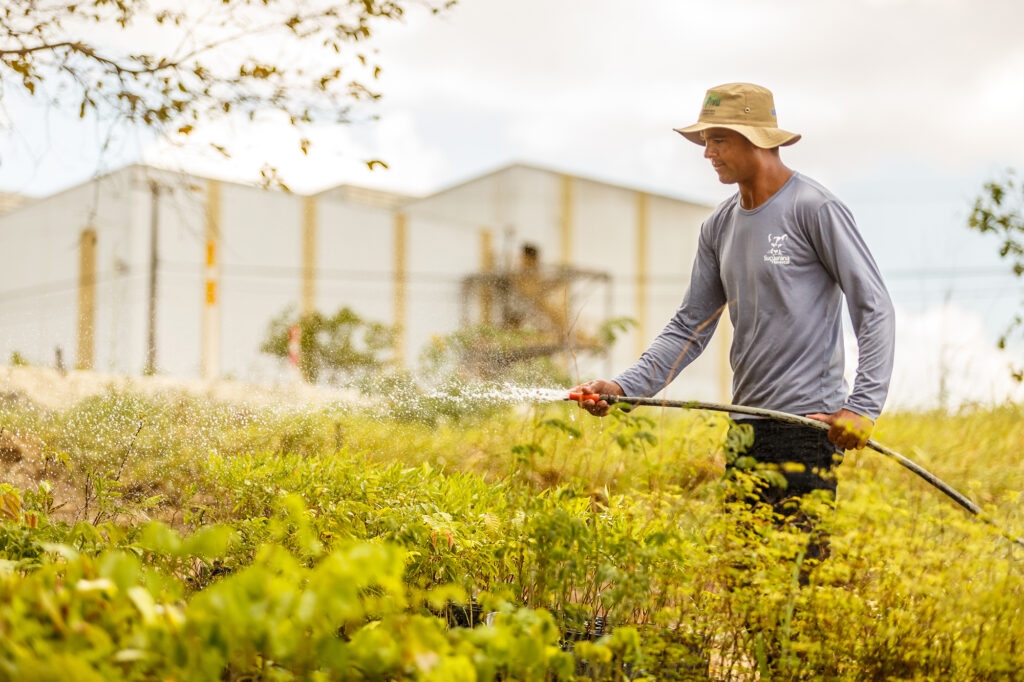
PROJECTS
Health, safety, environmental and community support programs are treated as a priority for Atlantic Nickel. We understand that the provision of permanent jobs represents an opportunity to give back to the region’s community and contribute to economic growth.
In addition to providing job opportunities and training for the local community, Atlantic Nickel has already organized various social and environmental programs that promote the commitment to environmental preservation, including: sports for children, food education, cocoa cultivation, beekeeping, and reforestation, among others.
Water
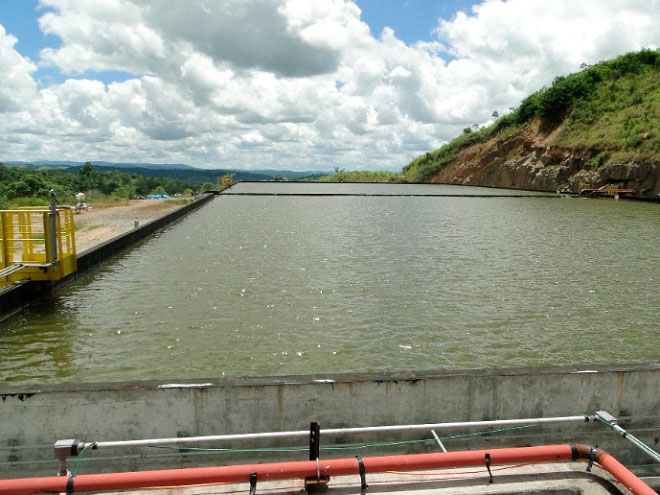
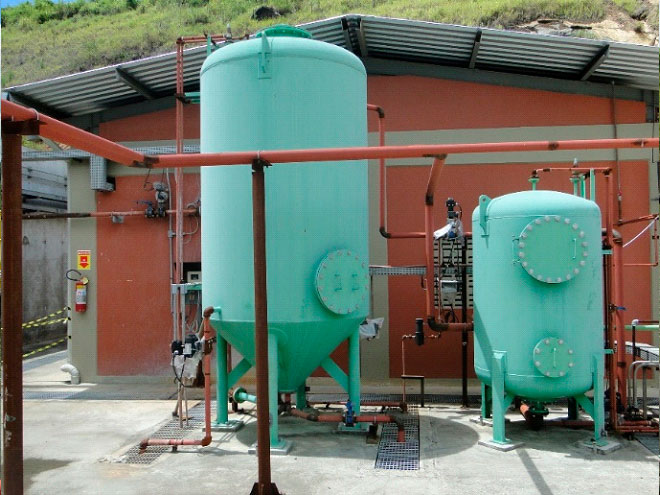
Atlantic Nickel has a closed circuit that reuses 90% of the water from pits, piles, processing plants and adjacent areas, being returned to the production process. The consumption of new water represents 10%, thus seeking to increase the water availability of the Rio das Contas and Rio do Peixe, which favor the supply of local communities and municipalities.
Atlantic Nickel has a water treatment plant with a treatment capacity of 15 m³/h, supplying treated water to all company employees.
The physical-chemical treatment consists of a flocculation, coagulation and filtration system, making it possible to obtain an average efficiency of 95% in removing impurities.
Air quality
In 2019, Atlantic Nickel began inventorying and quantifying greenhouse gases. 10,340 tons of CO² were emitted.
Currently, the standard used is the Greenhouse Gas Protocol (GHG Protocol), which is compatible with ISO 14.064:2007.
The Brazilian GHG Protocol Program aims to promote and facilitate the transition to a low-carbon economy for Brazilian companies, enabling them to monitor, report and verify their emissions and prepare corporate inventories.
The GHG Protocol was adapted to our national context, creating the Brazilian GHG Protocol Program (PBGHGP). For the purposes of quantification methods, the most important reference is the IPCC Guidelines for National Greenhouse Gas Inventories.
Companies need to quantify and disclose all emissions referring to scopes 1, 2 and 3, related to the Brazilian GHG Protocol Program.
Scope 1 refers to direct emissions from the operation, Scope 2 to electrical energy consumed and Scope 3 to indirect emissions, which concern purchased goods and services, transport and distribution, waste generated in operations and business trips.
Atlantic Nickel issued scope 01: 5,884 ton, scope 02: 3,862 ton and scope 03: 594 ton.
Measures related to the substitution of diesel with a lower sulfur content, the use of LED lamps, and the disposal of waste for co-processing have already been implemented as a way of reducing the emission of equivalent carbon dioxide (CO2 eq).
Follow the record of our air emissions here.
Fauna
Atlantic Nickel has a policy to protect and preserve wild fauna found in the project area. Faunistic species are monitored, providing information about the dynamics of species in forest fragments over time, such as habitat, movement in search of food or looking for partners for reproduction.
Among the animals monitored in the area, we can highlight: the tamarin Callithrix penicillata, tapiti Sylvilagus brasiliensis, saruê Didelphis aurita, peccary Pecari tajacu, giant armadillo Euphractus sexcintus and honeyeater Eira Barbara.
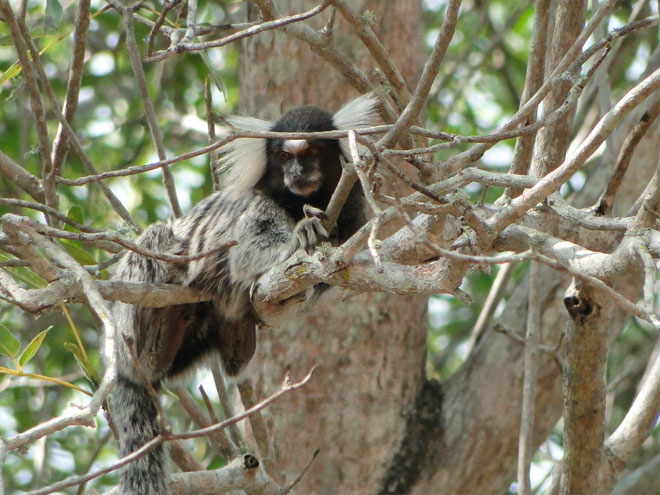
Flora
Atlantic Nickel is located in an area of the Atlantic Forest Biome, with notable floristic diversity and a considerable degree of preservation.
In the area we find tree species of high ecological value such as: Brazilwood Caesalpinia echinata, Brazilian rosewood Dalbergia nigra, canafistula Senna multijuga blackberry Helicostylis tomentosa and white embaúba Cecropia hololeuca, among others, these species are preserved in forest fragments.
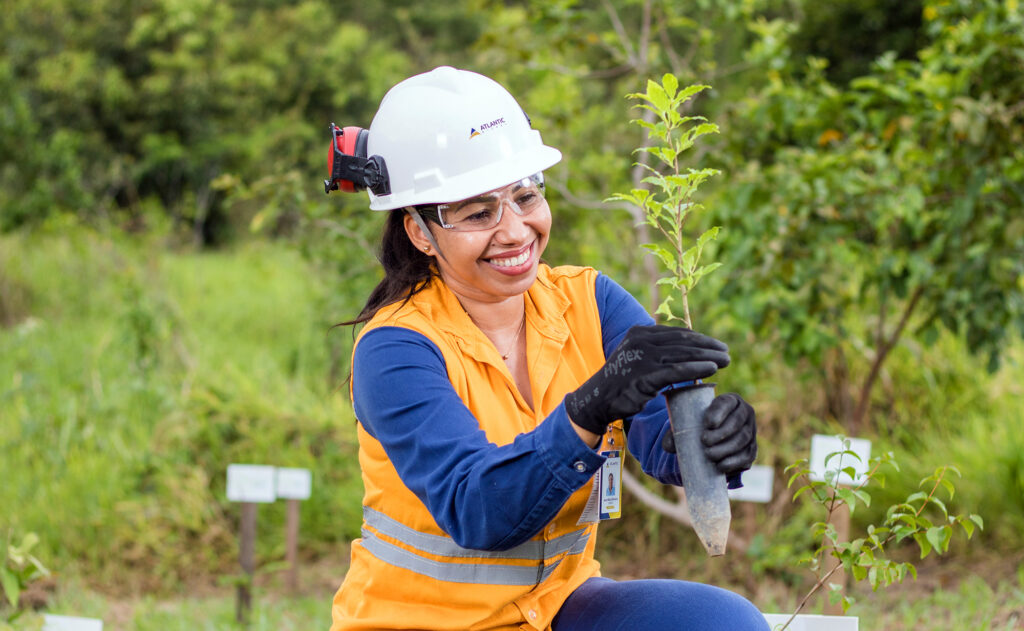
Waste
Atlantic Nickel has a Material Sorting Center – CTR, where reception, sorting, temporary storage and environmentally appropriate disposal are carried out.
The average recycling rate is 80%, and the materials are sent to a local collectors’ cooperative, with the aim of promoting income generation for associated families.
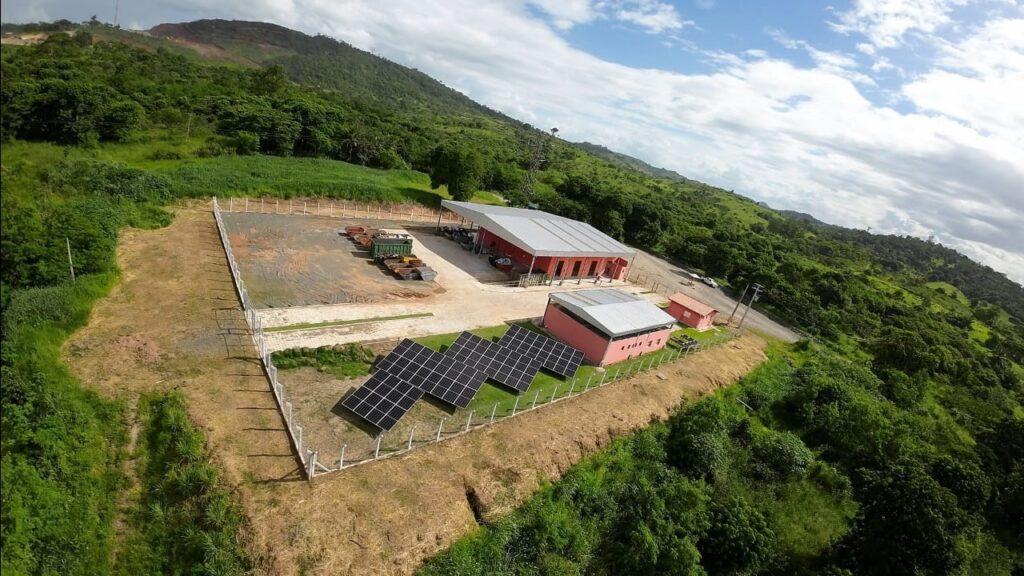
Regeneration
Atlantic Nickel has an environmental protection area of 542ha, located in the Permanent Preservation Areas – APP and Legal Reserves, characterized by the Atlantic Forest biome.
Between 2009 and 2020, the recovery of 87.25ha was promoted, with a total of 112 thousand native species planted such as Pau Brasil, Jacarandá da Bahia, Jatobá, Cedro, Jequitibá, Pau d’ Alho, Vinhático, Putumujú, among others.
In 2020, Atlantic Nickel inaugurated its new nursery, with capacity to produce 30 thousand seedlings, which was intended for the recovery of the unit’s areas and developed environmental education programs.
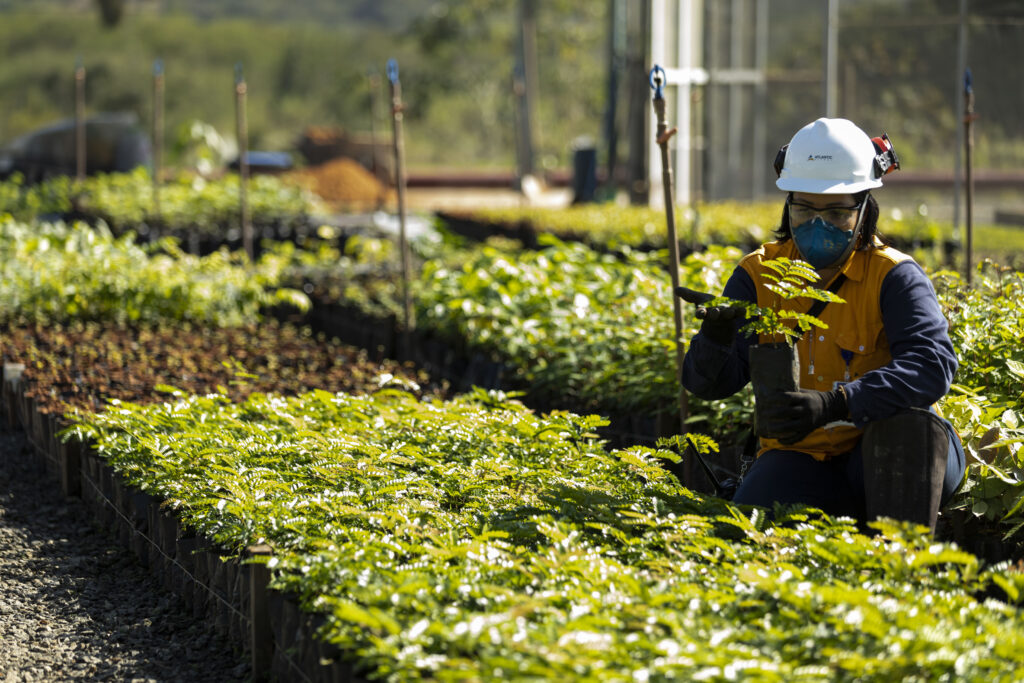
SOCIAL PROJECTS
Atlantic Nickel cares about the well-being and development of the territory where it operates. Whether through donations or different types of incentives, we make a point of investing in local projects that contribute to the prosperity of the community.
Music and Art Project – PROMART
Ipiaú, Bahia
The Music and Art Project – PROMART of Centro Batista Sete de Setembro (CBS) aims to provide children and adolescents, from the Public Education Network, with a comprehensive education offering them classes in: school reinforcement, socio-educational, Spanish, guitar, instruments wind, choir, sport, dance and IT. Strengthening ties with students’ families to discuss social issues.
STEM Brasil
STEM Brasil is a methodology presented in Brazil through Educando, a non-profit organization that aims to train teachers in the STEM methodology (Science, Technology, Engineering and Mathematics disciplines), also developing creativity, practical projects and local context. 5 municipal public schools in Ipiaú and Itagibá will be covered, influencing improvements for more than 1,700 students from 2022 to 2024.
Support Program for Municipalities
This program allocates investments to municipalities in the Area of Direct Influence (AID) of Mina Santa Rita based on the mapping of local opportunities. In 2022, the territorial potential for one of the most produced raw materials in the region – bananas – entered into a partnership with the Itagibá Department of Agriculture to execute the Banana Processing project. A partnership was also signed with the city council so that the final products can be used in municipal school meals.
RECICLARTE
An Atlantic Nickel initiative in conjunction with the Social Action Secretariat of the Municipality of Itagibá, RECICLARTE is a project to reuse textile material to transform it into sustainable pieces. By donating their own unused uniforms, a group made up of 10 local seamstresses convert the artifacts into new items, generating extra income through participation in solidarity economy fairs and direct sales to the population.
VOLUNTEER PROGRAM
Philanthropy is taken seriously at Atlantic Nickel, and to continue creating a legacy, in 2022 we formed a group for community promotion and support through volunteering. After territorial diagnosis resulting in engagement and social promotion, we previously mapped the institutions with service profiles for vulnerable populations that do not receive government support so that the volunteers who make up the Atlantic Nickel staff could support them through their skills.
COCOA PROJECT
The Cocoa Project directly supports farmers residing in the Area of Direct Influence (AID) of Mina Santa Rita, who harvest cocoa within Atlantic Nickel’s property and use the fruit as their main source of income. The main objective of the project is to strengthen the existing culture in the region for the cultivation and processing of cocoa through a program focused on sustainable development, job and income generation, biodiversity conservation and strengthening family farming.
PROFESSIONAL COURSES
In partnership with SENAC, based on meetings with the Tapirama community committee and Atlantic Nickel, it provided professional training for young people and adults. The courses were in the areas of Administrative Assistant, Hairdressing and Eyebrow Design. The training trained 45 people who, with their diplomas, were able to use their learning in the job market.

